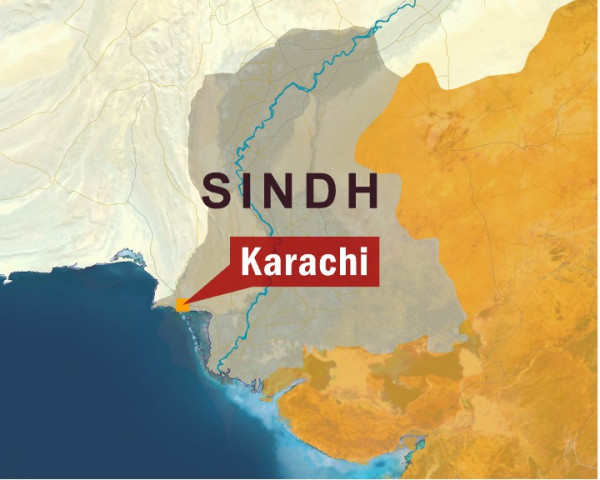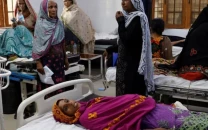And now, some good news after weeks of despair
Few people could argue with these words from Taj Haider: No depressed nation has ever progressed.

And then, as a corollary he added: “Let us find solutions.”
Haider, who is the Sindh general secretary of the Pakistan Peoples Party, came to the office of The Express Tribune on Thursday to explain the mechanics of the flooding, chronology of government decision-making, nature of relief camp challenges and what tasks lie ahead for the administration.
And while it came right at the end of his briefing, his assessment of the possibilities that lie ahead proved the most heart-warming.
So here is the good news. There is likely to be a boom in the housing sector as people go about rebuilding their lives. “Thirty industries contribute to building a house,” he said. This means money for the man who comes to fix the light bulb to the labourer who lays the bricks. “When you buy even the smallest thing, sales tax is earned,” he pointed out. Thus, it is likely that a lot of employment will be generated by the floods.
However, what remains to be seen is whether the Pakistani people and its government decide to modernise. For example, the world over pre-fabricated houses are used; they are cheaper and faster to put up.
Also, Chinese experts who came to Pakistan pointed out that we use twice the amount of water per acre, at least half more fertiliser than China and yet we produce only a quarter of what it does. “However, for now,” he said, “[rebuilding] the irrigation system will have to wait as the ground is still moist.” The road network will be the government’s first priority.
Cashing in
More good news. The government had earlier announced that it would give each flood-hit family Rs20,000 but this has been raised by the president to Rs25,000. There is a likelihood that Punjab will offer more, which will create a “race”, he said, but added that Sindh would try and match it.
The government has encountered a problem with the disbursement of the Rs20,000. Ninety per cent of the people in notified camps have been registered but the problem is that about 25,000 people are living in informal camps and an additional 80,000 to 100,000 people are living with their relatives. These people are not listed with the government and if they don’t step forward, they won’t be able to receive their compensation. Also, this opens the doors for imposters, especially if the government has open registration in a bid to get non-camp displaced people to enlist.
“But we’ve just come up with a solution for this,” said Haider. The government will give non-camp IDPs only part of the compensation, say Rs5,000, and tell them that they will receive the rest of the amount once they go home and report there. According to Haider, when the president was apprised of the dilemma of disbursing the compensation, he said it didn’t make sense to deprive the majority of people for the sake of a few imposters.
Home for Eid
The Sindh apparatus is facing additional pressure from IDPs who want to be back before Eid. “Nearly 60 per cent of them want to go home,” said Haider. The government first thought it could use army trucks and buses, but they only go four kilometres per litre. It is now working on hiring buses and running special trains. “But even here, the people who live in Jacobabad have a problem because the railway link was destroyed,” said Haider.
In the meantime, the Sindh administration is working on consolidating the camps - bringing them down to 10 or 12 instead of hundreds of scattered ones across the city. They discovered that people were scared off by rumours and stopped coming to Karachi. “The TCP camp had room for 30,000 more people,” said Haider. Instead of coming to Karachi, many people camped out on the road, under the sky, and without protection at a 90-minute drive from Karachi. It wasn’t feasible for the government to transport cooked food to them that far away. But now, by trying to spread the message on TV, the government has managed to persuade many of them to come to Karachi where there are better facilities.
As if to buttress his argument, Haider brought up the example of the Swat IDPs (people displaced by the fighting) who returned home in three to four months. This is a success that people ignore.
Published in The Express Tribune, September 4th, 2010.



















COMMENTS
Comments are moderated and generally will be posted if they are on-topic and not abusive.
For more information, please see our Comments FAQ